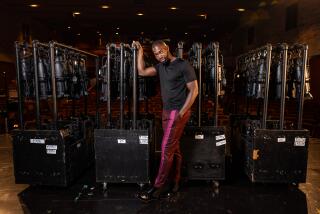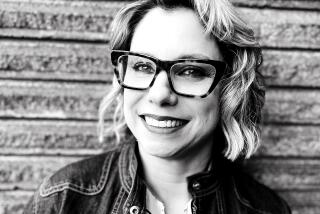What it was really like at the Algonquin Round Table
“Harold Ross: Founder of the New Yorker. ... He loved to give the impression of being just a country boy. You know: Very simple, unaffected man. And his jaw was always dropping, and he always listened like a green reporter out on his first interview listening to a speaker. But he really had a brain that was magnificent.”
That’s Marc Connelly, one of the members of the Algonquin Round Table, talking about his literary friends in the documentary “New York in the 1920s.” Several of the best wits and most acclaimed authors of the era lunched together at the Algonquin Hotel, egging each other on and throwing barbs.
In this documentary filmed nearly four decades later, it’s Connelly who provides the insights into the Round Table. Theater critic Alexander Woollcott “was searing, acid, rude; I used to feel sometimes his only exercise was rancour. But, he was engaging, was compelling, and amusing,” he admits. “His jokes were funny jokes.”
Down the line, his take on his fellow Round Table writers are a similar mix of criticism and admiration. He shares his thoughts on Edna Ferber, Robert Benchley, Dorothy Parker and others.
Connelly was a playwright who collaborated with fellow Round Table writer George S. Kaufman. In 1930, Connelly won the Pulitzer Prize for Drama for his play “The Green Pastures.”
Other literary figures who shared their recollections of the era in the 1961 documentary -- rediscovered by Open Culture -- include publisher Alfred Knopf and Stanley Walker, editor of the New York Herald Tribune. Neither is quite as quietly witty as Connelly, but their cultural knowledge is unimpeachable.
The film, narrated by journalist Walter Cronkite, also has footage of a number of writers, including Theodore Dreiser, Sherwood Anderson, Willa Cather, Eugene O’Neill (along with daughter Oona as a baby), Noel Coward and Edna St. Vincent Millay. As this was the 1920s, it’s all silent -- and a tantalizing slice of 1920s literary life.
ALSO:
Nothing to celebrate on ‘Public Domain Day’ 2014
Lebanese library burned, loses more than 50,000 books
Reading a novel exercises ‘muscles’ in the brain, researchers find
Carolyn Kellogg: Join me on Twitter, Facebook and Google+
More to Read
Sign up for our Book Club newsletter
Get the latest news, events and more from the Los Angeles Times Book Club, and help us get L.A. reading and talking.
You may occasionally receive promotional content from the Los Angeles Times.







